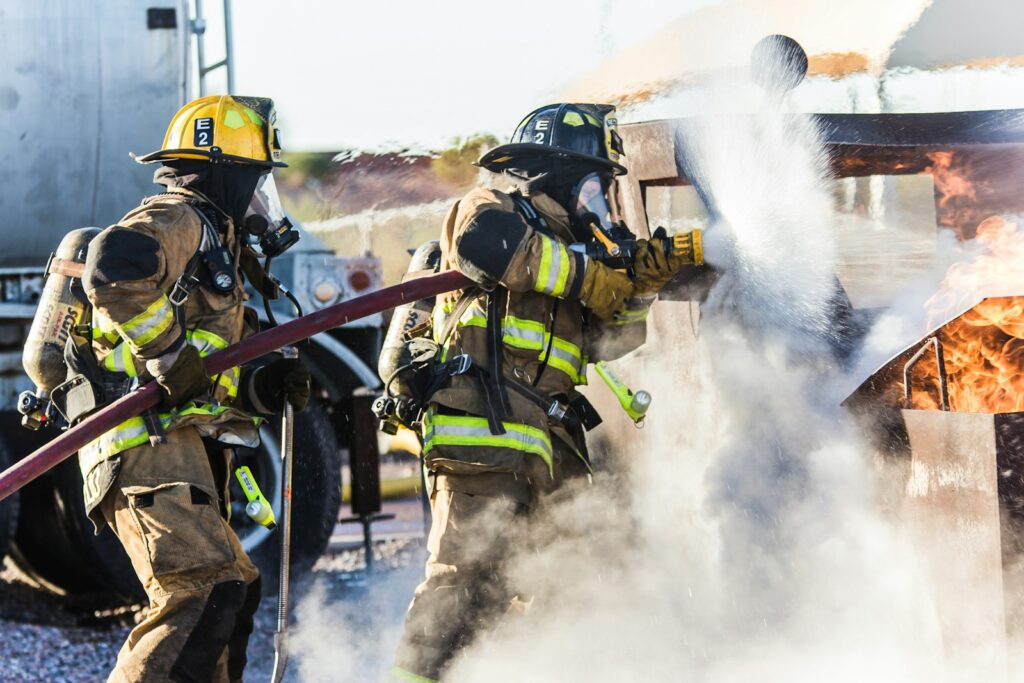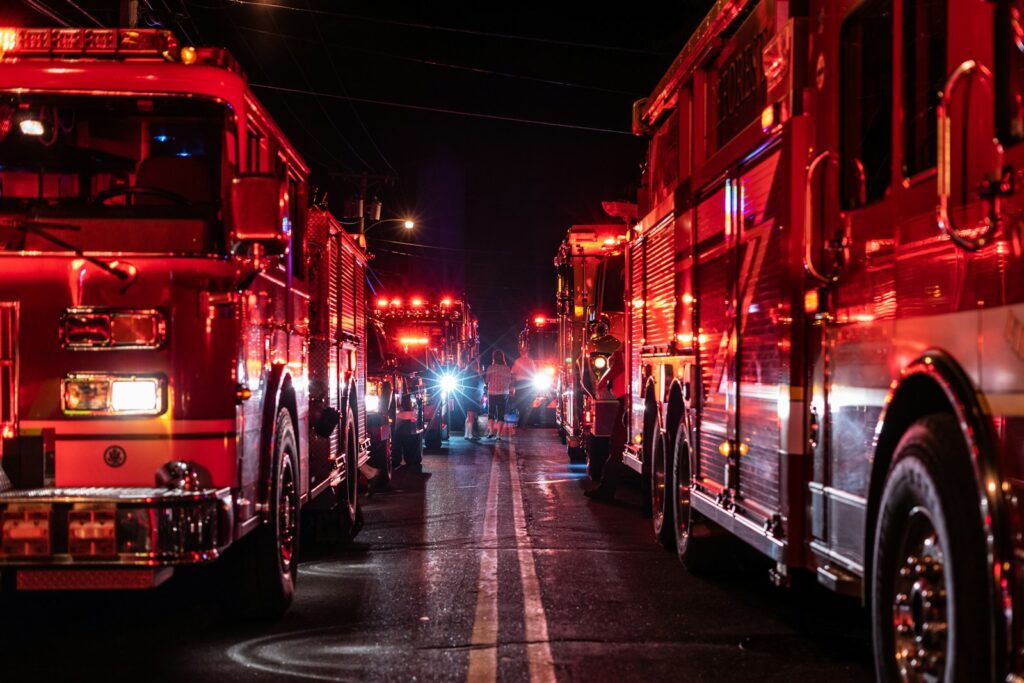As the role of firefighters continues to evolve beyond fire suppression to encompass emergency medical services and disaster response, understanding “firefighter interview questions” becomes crucial for candidates. This guide is designed to prepare you for the challenges of a firefighter interview, focusing on the essential skills and attributes required in 2024.
What are Firefighter Interview Questions?
Firefighter interview questions are designed to assess a candidate’s readiness for the physically demanding and mentally challenging duties of a firefighter. These questions often explore the candidate’s physical fitness, problem-solving abilities, teamwork, commitment to public service, and ability to handle high-pressure situations.
Most Common Firefighter Interview Questions

How do you handle stress in emergency situations?
This question assesses your ability to maintain composure and effectiveness under pressure.
Example: “I handle stress by focusing on the task at hand and relying on my training and team coordination. Staying calm and methodical ensures that I can perform effectively to resolve the emergency.”
Can you describe a time when you worked effectively as part of a team?
Teamwork is crucial in firefighting. This question evaluates your experience and skills in collaborative environments.
Example: “During a multi-alarm fire last year, I coordinated with my team to efficiently manage water lines and rescue operations. Our teamwork led to a successful outcome with no casualties and minimal property damage.”
What motivated you to become a firefighter?
This question probes your personal commitment and passion for the role.
Example: “I was inspired to become a firefighter after witnessing the impact of first responders during a community crisis. Their bravery and dedication motivated me to pursue a career where I could make a significant difference in people’s lives.”
What skills do you think are essential for a firefighter?
This question allows you to discuss the qualities that contribute to successful firefighting.
Example: “Critical skills for a firefighter include physical fitness, quick problem-solving, effective communication, and strong teamwork abilities. Additionally, empathy and a strong sense of duty are crucial for providing support during emergencies.”
How do you maintain your physical and mental fitness?
The demanding nature of firefighting requires excellent physical and mental health. This question assesses how you stay fit and prepared.
Example: “I maintain my physical fitness through regular strength training and cardiovascular exercises. Mentally, I engage in stress-relief practices like meditation and debrief with my team after tough calls to manage emotional stress.”
Describe your experience with fire prevention and education.
Fire safety education is a key part of a firefighter’s responsibilities. This question looks at your involvement in these areas.
Example: “I have led numerous fire safety workshops for schools and community groups, focusing on preventive measures and the importance of having escape plans. These initiatives have significantly reduced fire-related incidents in our community.”
Can you give an example of how you’ve handled an unexpected complication during a rescue operation?
This question tests your adaptability and problem-solving skills in crisis situations.
Example: “During a complex rescue operation where a victim was trapped in a collapsed structure, I improvised a solution using available tools to stabilize the debris, allowing us to safely extract the individual.”
How do you ensure effective communication during emergencies?
Effective communication can be life-saving. This question evaluates your communication strategies in high-pressure situations.
Example: “I ensure clear, concise communication during emergencies by using structured communication protocols and confirming that messages have been understood by all team members, which is crucial for coordinating efforts and ensuring everyone’s safety.”
What are your strategies for dealing with the emotional impact of the job?
Dealing with emotional stress is critical for long-term resilience in this field.
Example: “I deal with the emotional impacts of the job by participating in regular debriefings with my team, seeking support through counseling when needed, and engaging in hobbies that help me relax and recharge.”
How do you stay current with firefighting techniques and technologies?
Continuous learning is vital in a technologically advancing field.
Example: “I stay current with firefighting techniques and technologies by attending annual training seminars, participating in new equipment training, and reading professional firefighting journals to learn about the latest best practices and innovations.”
How to Get Prepared for Firefighter Interview Questions

Enhance Your Knowledge and Skills
Regularly update your firefighting techniques, emergency medical knowledge, and rescue skills through courses and certifications.
Build Physical Strength and Stamina
Maintain a rigorous fitness routine to ensure you can meet the physical demands of firefighting.
Practice Interview Scenarios
Conduct mock interviews to practice responding to questions under pressure and refine your interview technique.
Reflect on Personal Experiences
Prepare to discuss specific instances where you have demonstrated key firefighting skills and attributes, tailoring your responses to highlight your readiness for the role.
Special Focus Section: Advanced Firefighting Technologies
Explore how innovations like drone technology and advanced fire suppression systems are transforming firefighting strategies.
- Key Insight: Discuss the integration of drones for rapid assessment and monitoring of fire scenes.
- Expert Tip: Highlight the importance of adapting to new technologies and the benefits they bring in terms of safety and efficiency.
Conclusion
Preparing for firefighter interview questions in 2024 involves demonstrating your physical readiness, emotional resilience, and commitment to public service. By thoroughly preparing and showcasing your qualifications, you can effectively convey your suitability for this challenging and rewarding career.



